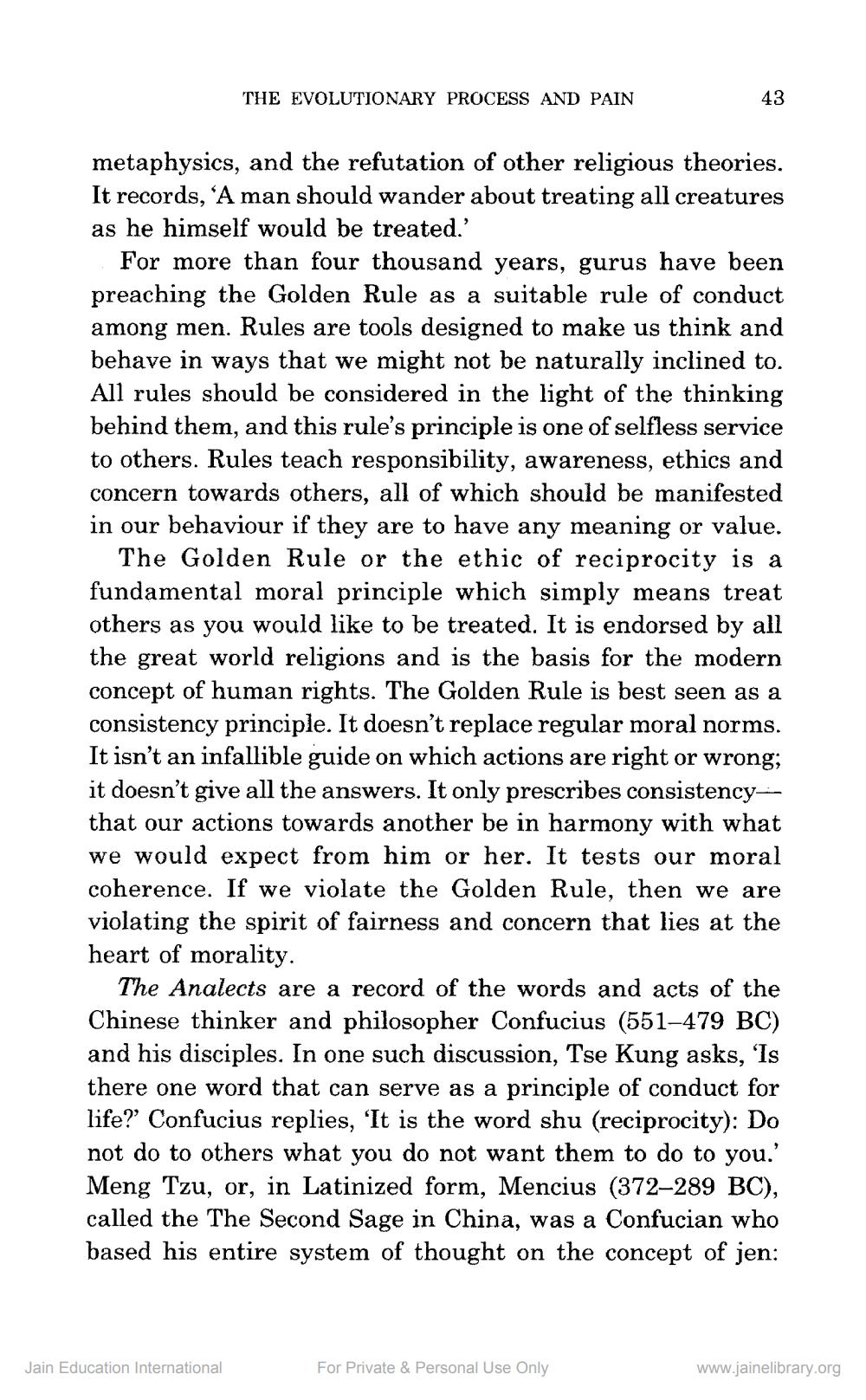________________
THE EVOLUTIONARY PROCESS AND PAIN
43
metaphysics, and the refutation of other religious theories. It records, 'A man should wander about treating all creatures as he himself would be treated.'
For more than four thousand years, gurus have been preaching the Golden Rule as a suitable rule of conduct among men. Rules are tools designed to make us think and behave in ways that we might not be naturally inclined to. All rules should be considered in the light of the thinking behind them, and this rule's principle is one of selfless service to others. Rules teach responsibility, awareness, ethics and concern towards others, all of which should be manifested in our behaviour if they are to have any meaning or value.
The Golden Rule or the ethic of reciprocity is a fundamental moral principle which simply means treat others as you would like to be treated. It is endorsed by all the great world religions and is the basis for the modern concept of human rights. The Golden Rule is best seen as a consistency principle. It doesn't replace regular moral norms. It isn't an infallible guide on which actions are right or wrong; it doesn't give all the answers. It only prescribes consistency-- that our actions towards another be in harmony with what we would expect from him or her. It tests our moral coherence. If we violate the Golden Rule, then we are violating the spirit of fairness and concern that lies at the heart of morality.
The Analects are a record of the words and acts of the Chinese thinker and philosopher Confucius (551-479 BC) and his disciples. In one such discussion, Tse Kung asks, 'Is there one word that can serve as a principle of conduct for life? Confucius replies, 'It is the word shu (reciprocity): Do not do to others what you do not want them to do to you.' Meng Tzu, or, in Latinized form, Mencius (372–289 BC), called the The Second Sage in China, was a Confucian who based his entire system of thought on the concept of jen:
Jain Education International
For Private & Personal Use Only
www.jainelibrary.org




